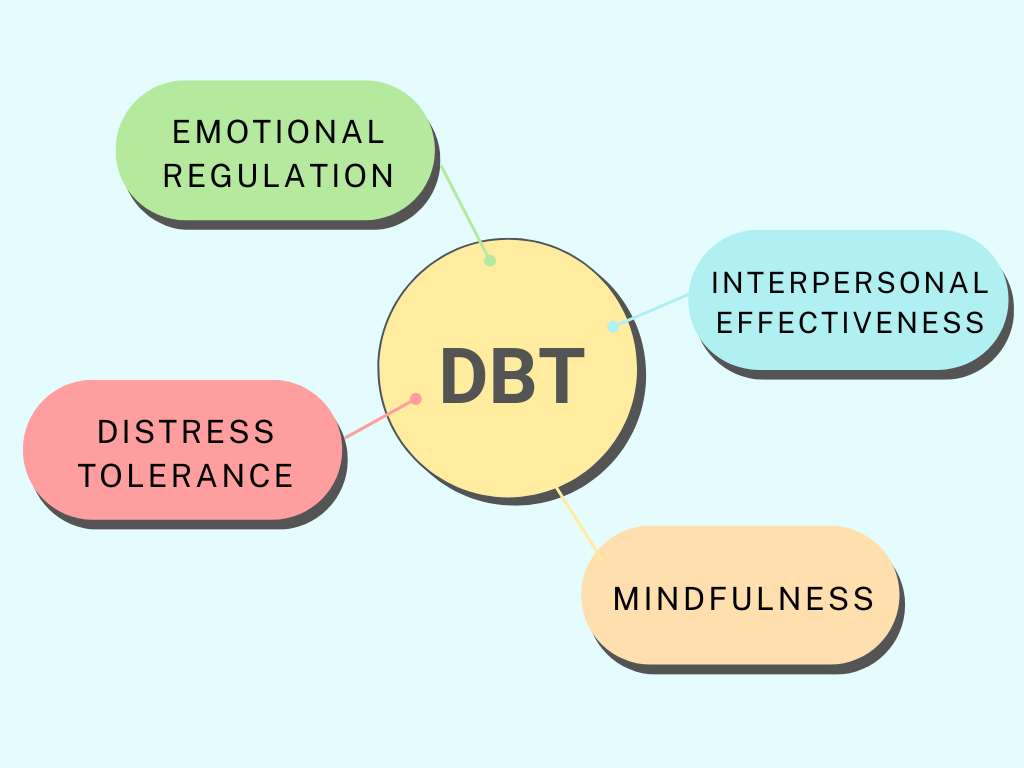Dialectical Behavioural Therapy (DBT)
Linehan found that the simultaneous existence of acceptance and change strategies is essential for treating BPD patients. Accepting and validating emotional experience alongside skill learning helps facilitate positive behavioural change.
The theoretical foundation of DBT are i) the biosocial theory proposes that emotional dysregulation originates from biological dysfunction and invalidating social environment; these emotions are characterized as excessive sensitivity, greater reactivity to low-level stimuli and stressor, and slow to return to normal; the invalidating environment repeatedly undermine and discredit a person from childhood; ii) the behavior theory shapes defining problem, assessing behaviour, choosing treatment, case conceptualization; the goal of intervention is decrease maladaptive and increase adaptive behaviour; iii) dialectic theory state that reality is constantly changing with opposing views and forces. (Mendez, 2015)
Dialectic theory applies to both the nature of reality and human persuasive dialogue and relationships. It helps to counter rigid thinking patterns and resolve relational tension. Dialectic stresses three main qualities: i) interrelatedness and wholeness, ii) principles of polarity, and iii) principles of continuous change.
DBT targets emotional dysregulation (interpersonal, self, cognition, and behaviour). DBT focuses on increasing conscious control, with skills learnt and practised, to strengthen emotional regulation. DBT treatment works on four primary areas of skill: Mindfulness, Interpersonal Effectiveness, Distress Tolerance, and Emotion Regulation.
DBT uses cognitive skills (targeting and chain analysis), discussing the event sequence, and exposure to reduce shameful feelings. DBT uses specific dialectic techniques (“wise mind, reasonable and emotional mind”, Extending, devil’s advocate, “Making lemonade out of lemons”, “allowing for natural change”) to emphasize that both sides of an argument can be true. (Appenzeller, 2020)
Reference:
Appenzeller, Z. (2020). Dialectical Behavior Therapy and Schema Therapy for Borderline Personality Disorder: Mechanisms of Change and Assimilative Integration. The Chicago School of Professional Psychology.
